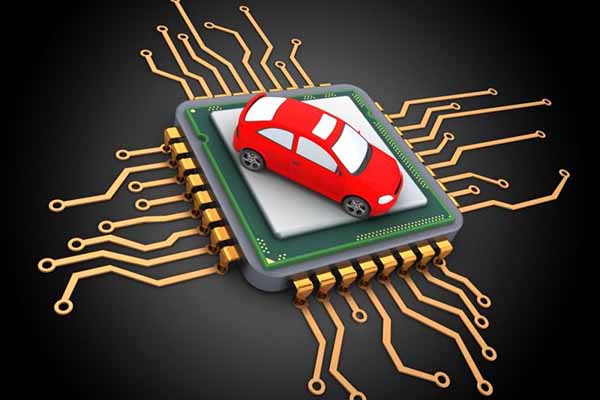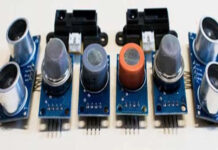Automotive Microcontrollers (MCU) are specialized microcontrollers designed to be used in automotive applications. They are responsible for controlling various functions in a vehicle, such as an engine management, transmission control, powertrain control, and safety systems like airbags and anti-lock braking systems (ABS). These microcontrollers are designed to be highly reliable and robust, with features like high-temperature tolerance, high electromagnetic interference (EMI) and electromagnetic compatibility (EMC) resistance, and high vibration resistance. They are also designed to be low-power and highly efficient, making them suitable for use in battery-powered systems like electric and hybrid vehicles. These are used for general applications and can be programmed to perform a variety of functions.
The demand side growth is ascribed to the growing modernization of the vehicle accelerates the installation rate of microcontrollers and the growing demand for safety features. Another important factor contributing to the growth is the increasing demand for advanced safety, convenience, and comfort systems that drives the Automotive Microcontrollers (MCU) market growth.
Drivers
Increasing expansions in the automotive industry drive the Automotive Microcontrollers (MCU) market growth.
The automotive industry is rapidly evolving, with the development of electric and autonomous vehicles and the integration of advanced features such as advanced driver-assistance systems (ADAS) and infotainment systems. All of these developments require advanced microcontrollers that can handle the increasing complexity and performance demands of modern vehicles. Moreover, the increasing global demand for automobiles is also driving the growth of the Automotive Microcontrollers (MCU) market. Additionally, the development of advanced manufacturing processes such as 3D printing and nanotechnology is also contributing to the growth of the Automotive Microcontrollers (MCU) market. These processes enable manufacturers to produce microcontrollers with higher precision and efficiency, which can help reduce costs and improve performance.
Restraint
The use of microcontrollers in modern vehicles has increased the risk of cyberattacks, as these devices are vulnerable to hacking and other types of security breaches. The potential consequences of a cyberattack on a vehicle can be severe, including loss of control, theft of personal information, or even physical harm. As a result, manufacturers of Automotive Microcontrollers (MCU) are under pressure to ensure that their products are secure and protected against cyber threats. Moreover, the automotive industry is also facing regulatory pressure to improve cybersecurity measures. For example, in the United States, the National Highway Traffic Safety Administration (NHTSA) has issued guidelines for the cybersecurity of motor vehicles. Compliance with these guidelines can be a costly and time-consuming process, which can also slow down the growth of the Automotive Microcontrollers (MCU) market.
Competitive landscape and companies covered in the global Automotive Microcontrollers (MCU) report
Some of the major players in this industry have taken a leadership position while trying to establish their market through innovative marketing strategies. These leading firms focus on expanding by developing new products or partnering with other companies for strategic initiatives that will help them conquer markets they occupied previously and make gains where it matters most- at home (geographic). There are a lot of local players in each of the regions who are trying to penetrate the market which again can be disruptive in low-income economies.
The Automotive Microcontrollers (MCU) market key players include Analog Devices, Inc, Cypress Semiconductor Corporation, Infineon Technologies AG, Microchip Technology Inc., NXP Semiconductors, On Semiconductor, Renesas Electronics Corporation, Rohm Semiconductor, STMicroelectronics, Texas Instruments Incorporated, Toshiba Corporation, Maxim Integrated.
Regional Growth Insights
In 2021, Asia Pacific accounted for the largest market in the Automotive Microcontrollers (MCU) market. Hybrid electric vehicle adoption is increasing in the Asia-Pacific area due to growing environmental concerns, expanding government subsidies, and features like improved performance, fuel efficiency, and affordability. The automobile industry has recently grown in the Asia-Pacific area. One of the most lucrative investment markets, the region has made a significant impact on worldwide vehicle sales. The major automakers have focused on expanding in Asia by establishing their corporate headquarters or manufacturing plants in countries like China, Japan, and India, which are the region’s automotive centers.
What`s New for 2023?
- coverage of the danger of a recession, supply chain disruptions, global trade tensions, the Russia-Ukraine War, global inflation, recovery analysis from COVID-19, and global inflation
- Positions of the main competitors and global competition
- influence in the market across several geographic areas – Strong/Active/Niche/Trivial
The investment made in the study would provide you access to information such as
- Automotive Microcontrollers (MCU) market [Global – Broken-down into regions]
- Regional level split [North America, Europe, Asia Pacific, South America, Middle East & Africa]
- Country wise Market Size Split [of important countries with major market share]
- Market Share and Revenue/Sales by leading players
- Market Trends – Emerging Technologies/products/start-ups, PESTEL Analysis, SWOT Analysis, Porter’s Five Forces, etc.
- Market Size)
- Market Size by application/industry verticals
- Market Projections/Forecast















